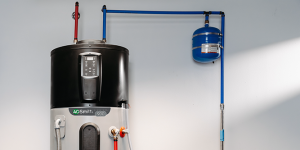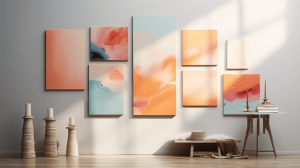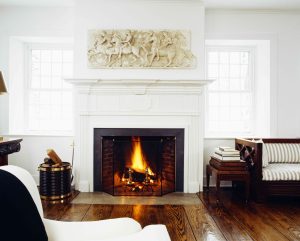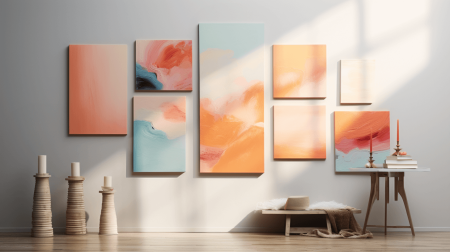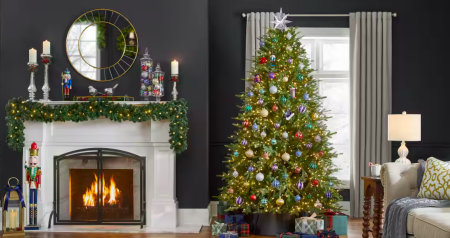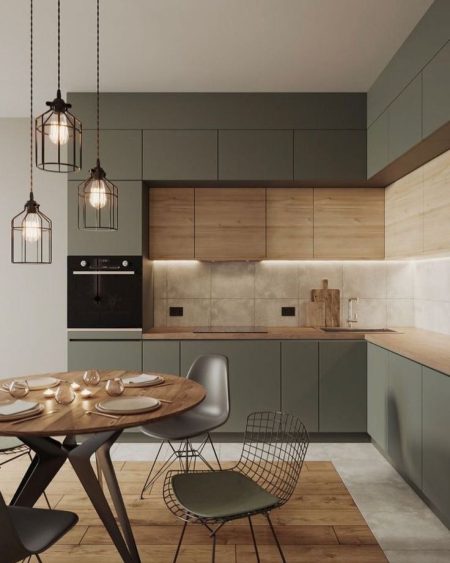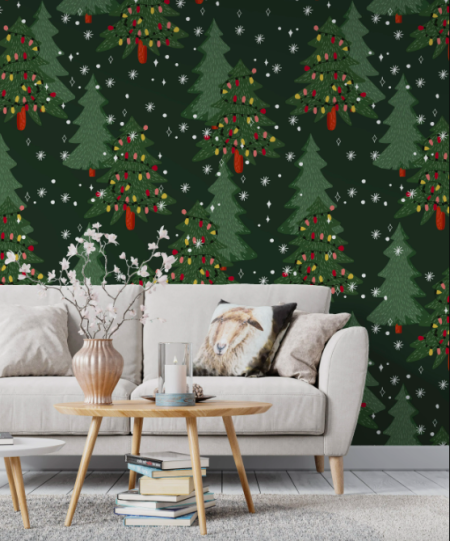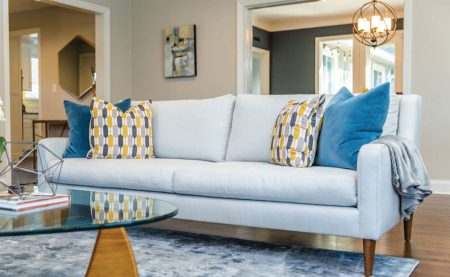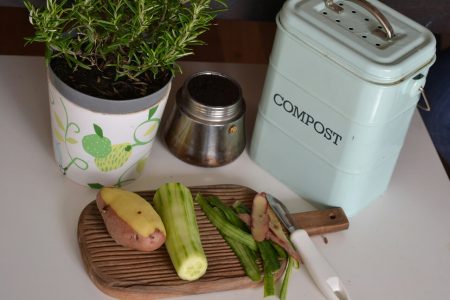The walls of your home are like a blank canvas, waiting to be transformed into something unique and captivating. While traditional wall paint has been the go-to choice for ages, there are a world of modern alternatives that can breathe new life into your living spaces. In this blog, we’ll explore innovative and exciting alternatives to wall paint that will give your walls a fresh, contemporary look.
Unleash your creativity and set yourself free from the confines of conventional wall paint! Your home’s walls offer a world of possibilities beyond the usual brush strokes. From eye-catching cladding to captivating tiles, and from interactive chalkboard paint to lush living walls, these innovative alternatives will undoubtedly give your walls a contemporary and alluring makeover. Get ready to revolutionize your home’s aesthetics with these exciting alternatives to wall paint!
Suggested: Top UPVC Doors Designs and Styles
1. Cladding
Instead of just painting your walls, why not treat them to something special? Cladding is a worthy alternative to overused paint and can be used to beautify the insides of your home. There are several types of cladding available such as stone cladding, metal cladding, tile cladding, aluminium cladding etc. Which serve different purposes and functions. Stone cladding panels are notably easy to install, virtually maintained free and beautifully ages with time. Cladding has completely revolutionized the wall application industry and proves to be the ideal choice as a permanent solution for an interior wall that requires frequent repainting.
Cladding
Preferring cladding over wall paint can offer several advantages, especially in specific scenarios or for certain types of buildings. Here are some reasons why cladding might be preferred over wall paint:
Cladding materials, such as metal, stone, or fiber cement, are more robust and resistant to environmental elements than wall paint. They can withstand harsh weather conditions, UV rays, and temperature fluctuations, making them a long-lasting solution that requires minimal maintenance over time.
Cladding acts as an extra layer of protection for the building’s exterior walls, shielding them from rain, wind, and other weather-related damages. This added protection can help extend the lifespan of the underlying structure.
Certain cladding systems, like insulated panels or composite materials with thermal properties, can enhance the building’s insulation. This contributes to better energy efficiency, reduced heating and cooling costs, and a more comfortable indoor environment.
Unlike wall paint, which may fade over time due to exposure to sunlight, cladding materials are often designed to retain their color and appearance for an extended period.
Some cladding materials, such as fiber cement or certain metal panels, offer excellent impact resistance, providing an extra layer of protection against accidental damage.
Enquire Now for Stone Cladding
2. Paneling
Another sure-shot way to liven up your wall is to cover it up with panels. Wall art with a recess, knick-knacks, statues et al can help distract your visitors from the wall behind while helping add both aesthetics and functionality to your house. They are available in a wide range of choices and styles giving you a host of options to choose from when trying to figure out which one works best for your abode. Your guests won’t ever have a clue of what lies behind all those panels.

Paneling
Preferring paneling over wall paint can be advantageous in certain situations, as it offers unique features and benefits that might not be achievable with traditional wall paint. Here are some reasons why paneling might be preferred over wall paint:
Paneling adds depth, texture, and visual interest to walls, creating a more dynamic and engaging look. The various patterns, designs, and materials available in paneling can lend a distinct character to the interior space that may not be attainable with a flat painted surface.
Paneling materials, such as wood, PVC, or MDF (Medium-Density Fiberboard), are generally more durable than wall paint. They can withstand wear and tear, resist scratches and dents, and are less prone to chipping or fading over time.
Paneling often comes in pre-made panels, making installation more straightforward compared to the multiple coats and preparation required for painting walls. This can save time and labor costs during the construction or renovation process.
-
Concealing Imperfections:
Paneling can effectively cover up minor wall imperfections, such as cracks or uneven surfaces, providing a clean and polished finish without the need for extensive wall repairs.
With proper care, paneling can have a longer lifespan than painted walls. It can withstand daily wear and tear, making it a practical choice for high-traffic areas or commercial spaces.
3. Metal Wall Covering
The metallic wall covering is a contemporary idea that is guaranteed to make a statement. Metal, when tastefully done, can completely transform a room, taking it from ordinary to the designer, especially when paired with the right type of accessories. An elegant large-scale mural, a metallic wall cladding, or even a metallic wallpaper can create a backdrop like no other while also being durable enough to easily stand the test of time. The possibilities are seemingly endless and it can give your mundane and dull walls, a new leash of life.

Metal Wall Covering
Preferring metal walls over wall paint can be advantageous in certain applications, as metal wall systems offer unique benefits that go beyond what traditional wall paint can provide. Here are some reasons why metal walls might be preferred over wall paint:
Once installed, metal walls generally require minimal maintenance. They do not need regular repainting like traditional wall paint, which saves both time and money on maintenance costs.
Metal walls offer better fire resistance compared to some wall paint products. This makes them a safer choice for buildings where fire protection is a significant concern.
Metal wall systems can provide additional structural strength to the building, contributing to its overall stability and integrity.
Metal walls are resistant to impacts and dents, making them suitable for high-traffic areas or commercial spaces.
Metal walls can be used as part of architectural design features, such as creating accent walls, facades, or decorative elements.
4. Tile
Another way to retyle your walls is by covering them entirely with tile from floor to ceiling. There are several different types of tiles you can experiment with such as tile cladding, metal tiles or the tried and tested ceramic tiles, thus proving tile to be an extremely versatile option. Furthermore, they are extremely long-lasting and easy to maintain. As long as the tiling is properly executed, moisture will never be an issue either. You can even play around with different tiling options that are of different shapes and sizes to give your house a truly sophisticated and contemporary look.
Suggested: Modern House Railing Designs in India

Tiles
Preferring tiles over wall paint can be advantageous in certain situations, as tiles offer unique benefits and aesthetics that cannot be achieved with traditional wall paint. Here are some reasons why tiles might be preferred over wall paint:
Tiles are highly durable and resistant to wear, scratches, and impacts. They can withstand the test of time and maintain their appearance for many years, making them a long-lasting solution for both interior and exterior walls.
Tiles come in a wide range of designs, colors, shapes, and sizes. This versatility allows for creative and unique design options, enabling homeowners to achieve specific aesthetics and styles that may not be achievable with paint alone.
Tiles can add a touch of sophistication, elegance, or uniqueness to any space. They can be used to create feature walls, intricate patterns, or mosaic designs that become focal points in the room.
Installing tiles, especially in areas like kitchens and bathrooms, can increase the resale value of a property as it is considered a desirable and durable finish.
Glazed ceramic and porcelain tiles are resistant to stains, making them suitable for spaces where spills and splashes are common.
Conclusion:
The days of relying solely on traditional wall paint are long gone. Embrace the modern alternatives mentioned above to transform your walls into captivating works of art. Whether you prefer the versatility of wall decals, the textural depth of wall panels, or the eco-friendliness of living walls, there’s an option to suit every taste and style. Step out of your comfort zone, get creative, and give your walls the modern and new look they deserve.
Read the full article here


